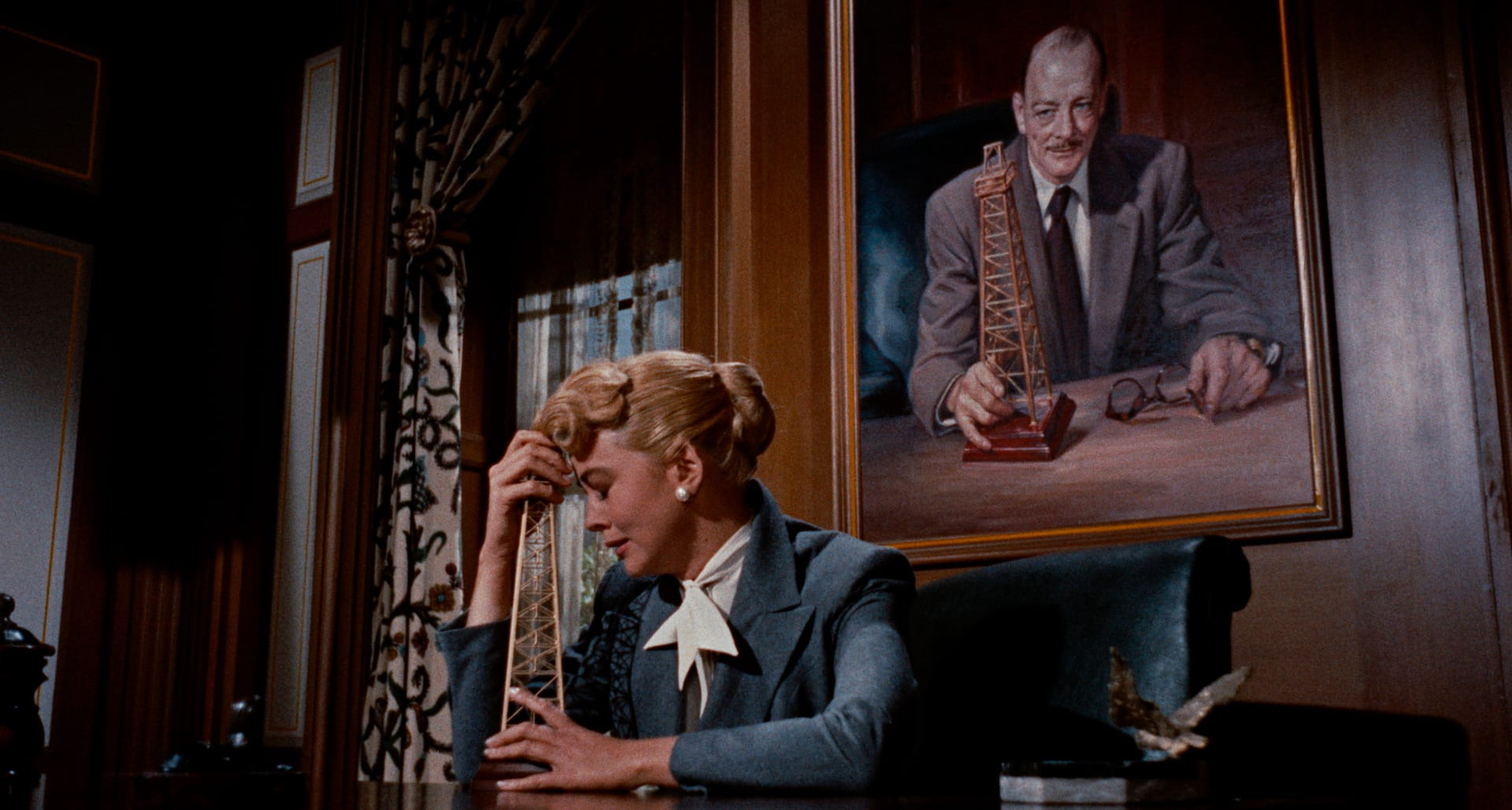RELATED ARTICLE
Sirk in the Sun
By Zach Clark
The Criterion Collection

Melodrama gets tossed around like a dirty word. The genre’s sensationalistic plots are often thought to signify a shamefaced turning away from actual life, something that is knottier and less preposterous. But in that gap between the real and the baroque, there is a glimmer of meaning, revealing the irreconcilable tensions between the surface of a society and its underbelly. American life is melodramatic—full of color, music, desire, pressure, and violence. German-born director Douglas Sirk seized on the opportunity to lay bare these qualities in the films he made for Universal Pictures in the 1950s that secured his legacy—Magnificent Obsession, All That Heaven Allows, Written on the Wind, and Imitation of Life among them. That time in American cinema, Sirk once said, was “the twilight of the gods” for drama, which necessitated “the belief in guilt, and in a higher order. This absolutely cruel didactic is impossible, unacceptable for us moderns. But melodrama has kept it.” He understood that the genre’s excesses were what enabled it to handle the nuances and contradictions of contemporary life in a way that more straightforward drama no longer could, in a postwar society that was losing the cohesion from which realism might spring. The artifice was the point. Color works the way color feels; the lighting frequently comes from whichever direction best suits the scene, regardless of the sources we see on-screen. Naturalism, for Sirk, would be the lie. On the screen, everybody is already bigger than life. Why not refashion the whole world that way?
Written on the Wind, Sirk’s 1956 masterpiece, begins, like any good tragedy, with a portent. The film opens at first light, with Kyle Hadley (Robert Stack) hurtling down a Texas road in a yellow sports car while downing a bottle of raw corn liquor. “I did want to do pictures about America,” Sirk said, “not just appeal to American tastes.” Already, he has made clear his intention to do both in this film. The greasy man riding into town had long been a mainstay of American cinema. Here, Sirk replaces the towering rock formations of Monument Valley with oil derricks. We don’t know it yet, but everything Hadley sees is his, or will be soon. It isn’t enough. While the Four Aces sing of faithless lovers on the soundtrack, he gets out of his car and stumbles into his mansion. The sound of the wind rises, a gunshot rings out, and a man emerges from the home, then spills forward onto the driveway. The wind blowing through the pages of a desk calendar signals our move back in time to just over a year before the fateful night. In under three minutes, Sirk has laid out the whole film: great wealth, indiscretion, and violence. Death is coming. The question isn’t even when but how and why.
Producer Albert Zugsmith had a publicist’s sense of which way the wind was blowing. He guessed, correctly, that American audiences of the fifties were interested in seeing what was being kept from them by the restrictions of the Hays code. The era may be popularly remembered as one of conformity and prosperity, but it was also the decade that saw Billy Graham’s rise, the launch of Playboy, and the yearlong Montgomery bus boycott. Depending on which way you looked, America was either a populuxe wonderland or a country on the verge of a nervous breakdown. Written on the Wind, based on Robert Wilder’s racy 1946 novel, was the perfect vehicle to see how far Hollywood could go. It is a frenzied dance among changing partners who all want badly and behave poorly. In its reviews of the script, the Hays Office repeatedly asked for some line condemning the profligacy of Marylee Hadley (Dorothy Malone), but it never came. Marylee does wind up without the man she loves, but even saints have watched men walk out the door never to return. It’s no condemnation; it’s a tough break. She ends the film alone in her dead father’s office, shorn of a brother and a lover too. All she has left is more money than God.


“Each member of the quartet—Lucy, Mitch, Kyle, and Marylee—is so wrapped up in their own soul’s dark night that they can’t quite see the crisis of their social situation.”

